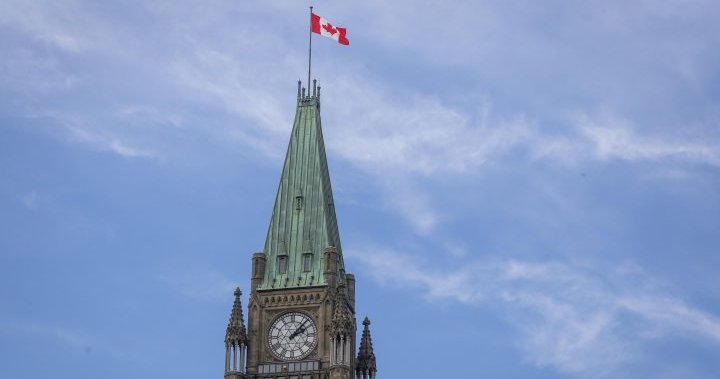According to a recent poll conducted by Ipsos Public Affairs exclusively for Global News, almost 50% of Canadians believe that their pride in being Canadian has changed over the past five years. Interestingly, the respondents who reported a decrease or increase in pride were evenly split. The poll surveyed 1,000 individuals aged 18 and older, delving into their sentiments towards Canada as July 1 approaches.
Out of all the participants, 58% stated that their pride levels had remained unchanged, while 42% revealed that they have experienced a change in pride. Breaking it down further, 21% stated that they feel more proud of their Canadian identity, while another 21% said that their pride has diminished compared to five years ago.
The data revealed that younger Canadians, especially millennials, were more inclined to feel less proud compared to older generations. Approximately one-quarter of millennials expressed a decrease in their pride, while only around one-sixth of baby boomers reported the same sentiment. Sean Simpson, the vice-president of Ipsos, suggests that this discrepancy can be attributed to the fact that attitudes and beliefs become more ingrained and less influenced by external circumstances as individuals spend more time in Canada. Millennials and Gen Z, on the other hand, are more likely to reassess their Canadian identity and their relationship with the country, while boomers tend to maintain the status quo.
Apart from pride in their country, the participants were also asked about their plans to celebrate Canada Day compared to five years ago. Approximately 50% of Canadians stated that their plans have remained unchanged, with intentions to attend festivals, parties, or other events. 57% said that they would display the Canadian flag, while 45% had mixed opinions. Respondents were allowed to choose multiple ways they planned to commemorate.
When it comes to attending parties or events and waving the flag, approximately a quarter of respondents stated that they are more likely to do so compared to five years ago, while a similar number claimed they are less likely. This seeming contradiction could be explained by the fact that younger individuals may be more inclined to socialize and engage in different activities aside from traditional fireworks displays. For example, they may attend Indigenous talks or seek to learn more about Canada’s history. Sean Simpson emphasizes that even if they express a higher likelihood of attending these events, their participation may not follow the traditional patterns due to changing preferences.
The survey also highlighted gaps in terms of education on Indigenous history among different age groups, genders, and educational backgrounds. Four out of 10 Canadians stated that they are more likely to learn about Indigenous history in the country compared to five years ago. Women and university graduates showed a higher interest in learning compared to men and high school graduates. Millennials and Gen Zers were particularly interested, with nearly half expressing a desire to learn, while approximately 32% of baby boomers displayed the same inclination. In contrast, around half of Generation X and boomers reported no change in their likelihood of learning about Indigenous history.
Simpson suggests that the recent spotlight on the residential school crisis has brought to attention the general lack of knowledge about Indigenous history and the impact of settlers on Indigenous Canadians. He believes that the first step towards reconciliation is understanding, leading to a growing interest in Indigenous education.
Despite some expressed concerns about Canada’s issues, a significant portion of the respondents mentioned that they would still speak positively about the country to non-Canadians. Over one-third claimed that they are even more likely to do so compared to five years ago, while only 14% stated that they are less likely to communicate positively. Simpson believes that this might be a defensive mechanism, as Canadians become increasingly aware of the country’s challenges while also recognizing its positive aspects. He emphasizes that Canada remains an excellent, welcoming, and inclusive country that is continuously striving to improve itself.
In conclusion, the Ipsos poll offers valuable insights into Canadians’ changing sentiments towards their national identity. The survey was conducted on June 19 and 20, 2023, interviewing a sample of 1,000 Canadians aged 18 and above. The sample’s composition reflects that of the Canadian population according to census parameters, achieved through the use of quotas and weighting. The credibility interval of Ipsos online polls is ±3.5 percentage points, with a precision of 19 times out of 20 when all Canadians aged 18+ are considered.
Denial of responsibility! VigourTimes is an automatic aggregator of Global media. In each content, the hyperlink to the primary source is specified. All trademarks belong to their rightful owners, and all materials to their authors. For any complaint, please reach us at – [email protected]. We will take necessary action within 24 hours.


